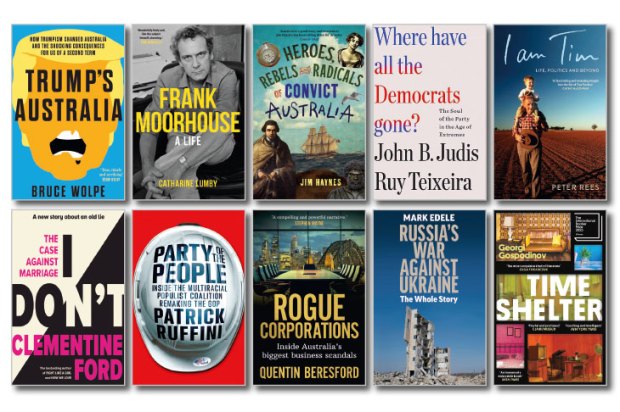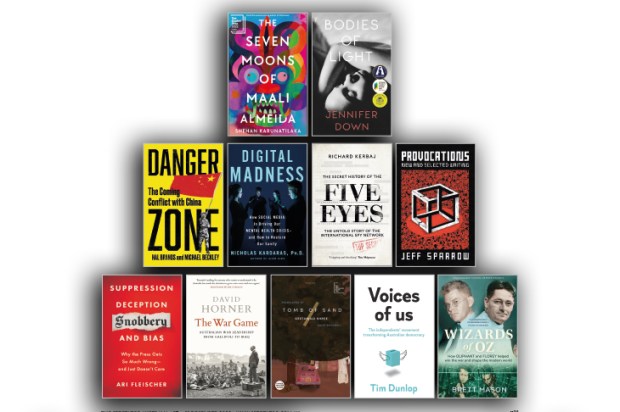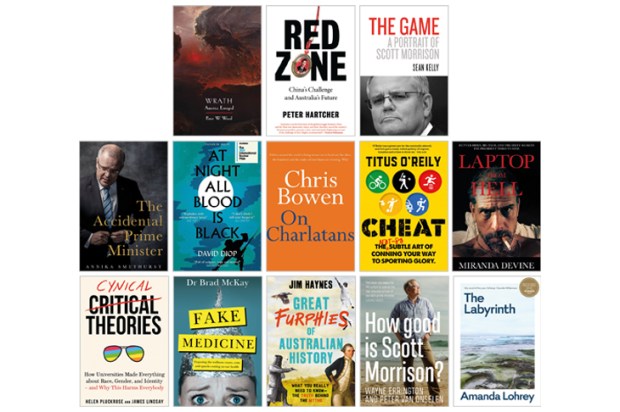Wars make myths; probably no-one understood that better than Charles Bean, Australia’s first true war writer and a person who did more than most to create our national identity. So it is odd that his own story is often passed over, like a hidden foundation stone. But this study by Peter Rees, a journalist with a number of books behind him, sheds a good deal of light on Bean. It is the first examination of this magisterial length; although Bean, a man of personal modesty, might have wondered what the fuss is about.
Some of Charles Bean’s pre-1914 views – his belief in the natural superiority of European cultures, for example – seem dated and awkward now, but it must be remembered that those attitudes were entirely prevalent at the time. Bean, originally from Bathurst, moved easily between Australia and Britain, in a family that considered travel to be a critical part of education. He studied at Oxford and, returning to Australia at the age of 25, looked to the law for a while. But it was clear that his vocation was as a journalist and writer.
He cut his teeth as a police roundsman for various newspapers but also developed a taste for international affairs. Both served him well when, at the outbreak of World War I, he was appointed as official war correspondent to the Australian Imperial Force, with the honourary rank of captain. It was a new role, and Bean defined it himself, insisting that he be with the troops – ‘embedded’ before the term was invented – as much as possible.
He was a long way from the bronzed, broad-shouldered archetype of the soldiers he admired, being somewhat weedy and myopic. But he could write up a storm, and pulled no punches when it came to describing those men who, in the Anzac sojourn in Egypt, he saw as disgracing the uniform.
When the troops jumped into history at Gallipoli, Bean was full of praise. He went ashore soon after the first landing, dodging bullets with the best of them and assisting wounded soldiers when needed. His position on the front line gave him a unique view but it also meant that his reports took longer to reach home than those of commentators based on the ships offshore, a point which rankled.
After Gallipoli, Charles Bean accompanied the troops to France, where he found a different sort of slaughter. He took a bullet in the leg but his greatest pain was the incompetence of commanders, especially when Australian lives were frittered away in meaningless attacks. His writing style became rather grim; some of his pieces were rejected because they were insufficiently colourful.
It was the loss of good men for little gain that made Bean question his previous certainties. In particular, he started to think that the English class system had produced officers that were narrow-minded, weak-willed and, at worst, simply incompetent. He also had increasing concerns about the senior officers of the Australian forces; on several occasions, he and Monash rubbed badly against each other, although Rees believes they eventually developed a grudging respect.
For Bean, the evidence of military error was a difficult issue. He was keenly aware that reporting on the war had an element of propaganda (there was also the Censor to consider), and reconciling the positive tone with the bloody facts on the ground was a problem he never fully resolved. He did, however, begin to think of a larger work which would give him more freedom – this would become his multi-volume history of Australians in WWI. Eventually, and in peacetime, he came to the view that the nation and its people were best served by the truth.
Despite his doubts, Bean was never a rebel. Despite his admiration for the openness of Australians, Bean was a rather closed person, never one of the gang. And not one for larrikinism and carousing. Rees recounts an incident when Bean held back from a party organised by Keith Murdoch (who pops in and out of Bean’s story), apparently on the basis that there was a war going on, somewhere. This says much about the sort of person Bean was, but it also means that a biography of him deals mainly with his actions and achievements rather than his inner life.
Bean returned to Australia in 1919, and if he suffered from post-traumatic stress there is little sign of it. He settled down to the mammoth task of writing the official historical account, although he would also be a pivotal figure in the establishment of the Australian War Memorial. Ultimately, the history amounted to twelve volumes, ten thousand pages, four million words, mixing personal accounts with commentary on the large picture. The final volume would appear in 1942, when Australia was again at war. Rees points out that the new generation of war reporters drew on Bean’s legacy, and there are echoes even in contemporary times.
Even in the latter part of his life, Bean’s sense of public duty remained, and he took on roles such as chairman of the War Archives Committee. He refused a knighthood: Rees opines that accepting ‘would have been out of character for such a firm believer in egalitarianism’. Which says it all, really.
If Gallipoli is the heart of Bean’s story, Harvey Broadbent offers a perspective from the other side of the trenches in Defending Gallipoli: The Turkish Story. From the Turkish position, the action was an invasion of their territory, overlaid with religious and geopolitical issues as the Ottoman Empire collapsed.
Broadbent spent five years translating everything from diaries to official records, and the result is an holistic picture.
He notes that Turkish losses far outstripped Anzac casualties, often due to command and planning errors. Many of the Turkish troops were headed by German officers, creating huge problems of translation and co-ordination.
But the key element of Broadbent’s account is the degree to which the Allies totally misunderstood and under-estimated the Turks.
Perhaps that misunderstanding has persisted, with the Australian emphasis on the Anzac spirit. The value of Broadbent’s book is that it does much to dispel that.
Got something to add? Join the discussion and comment below.
Get 10 issues for just $10
Subscribe to The Spectator Australia today for the next 10 magazine issues, plus full online access, for just $10.
Derek Parker is a regular book reviewer for The Spectator Australia
You might disagree with half of it, but you’ll enjoy reading all of it. Try your first month for free, then just $2 a week for the remainder of your first year.











Comments
Don't miss out
Join the conversation with other Spectator Australia readers. Subscribe to leave a comment.
SUBSCRIBEAlready a subscriber? Log in